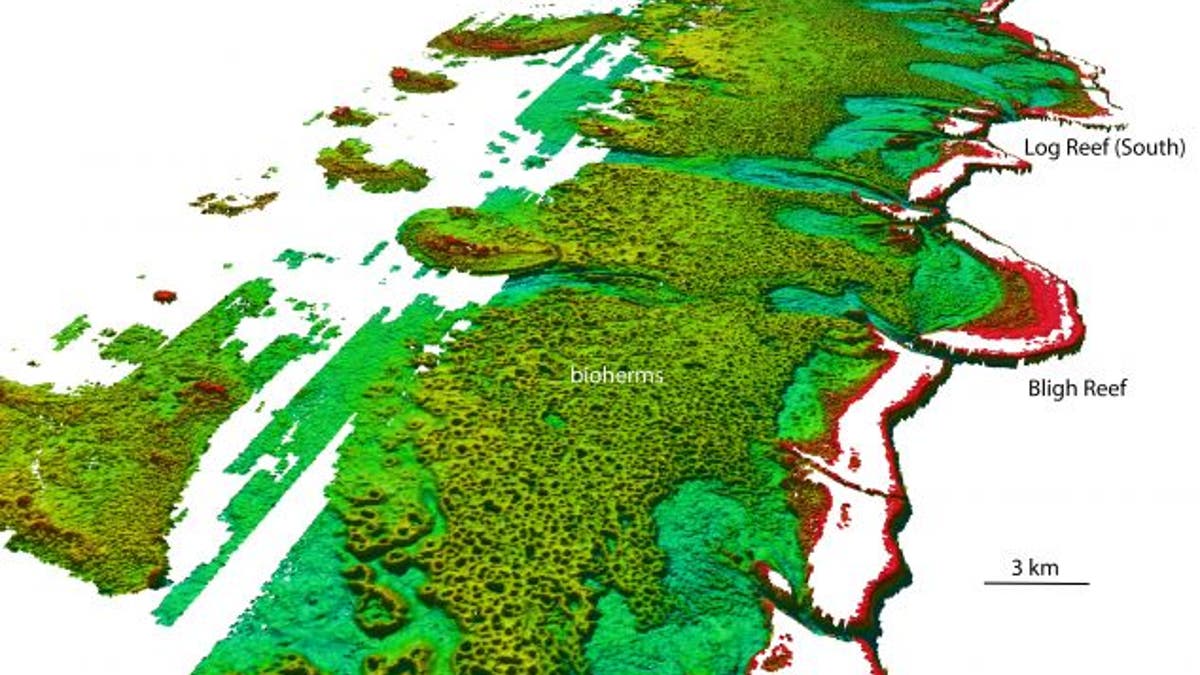
North-westerly view of the Bligh Reef area off Cape York, Australia. (James Cook University)
Researchers working with the Royal Australian Navy have discovered an extensive reef system behind the famous Great Barrier Reef, mapping a huge network of donut-shaped features that measure between 650 and 984 feet across.
The formations are called bioherms, and were made by a type of algae called halimeda. Shaped like donuts, the structures can be as deep as 33 feet in their center.
“We’ve known about these geological structures in the northern Great Barrier Reef since the 1970s and 80s, but never before has the true nature of their shape, size and vast scale been revealed,” Robin Beaman, a researcher with James Cook University in Queensland, Australia, said in a statement.
Beaman is also a coauthor on a new study about the fascinating formations, which was published in the journal Coral Reefs.
Related:
“The deeper seafloor behind the familiar coral reefs amazed us,” he added.
The researchers used data from aircraft carrying lidar surveillance technology, and were surprised at the extent of the bioherms: they occupy a much bigger area than they thought they would.
"We've now mapped over [2,316 square miles],” Mardi McNeil, the lead author of the new study and a researcher at Queensland University of Technology, said in the statement. “That's three times the previously estimated size, spanning from the Torres Strait to just north of Port Douglas. They clearly form a significant inter-reef habitat which covers an area greater than the adjacent coral reefs."
The scientists would like to study the structures further, and are also concerned that ocean acidification and warming could affect them.
Follow Rob Verger on Twitter: @robverger








































